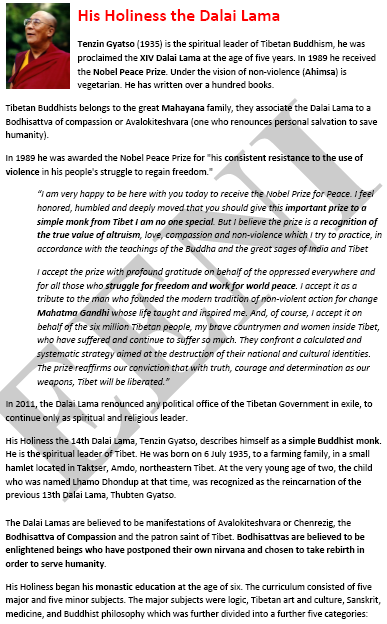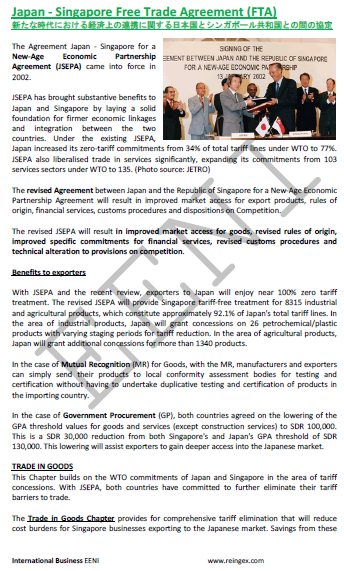Why study Buddhism, Ethics and Business?
Buddhism and Business (Study, Course, Master, Doctorate)

This online educational program is aimed mainly at those companies and international trade professionals who wish to do business in the countries of the Buddhist Economic Area, markets where the influence of Buddhism is fundamental. In general, the knowledge of Buddhism and its influence on business is very unknown, being necessary therefore to know the pillars of Buddhism.

Related Doctorate, Masters and Courses taught by EENI Global Business School:
- Course: Buddhism, Ethics and Business
- Doctorate (DIB): Ethics, Religions & International Business
- Masters (MIB): Religions & Business, International Business
Masters for the Students from
 Cambodia,
Cambodia,
 Laos,
Laos,
 Myanmar,
Myanmar,
 Singapore,
Singapore,
 Thailand,
Thailand,
 Vietnam,
Vietnam,
 Bhutan,
Bhutan,  Nepal, and
Nepal, and  Sri Lanka.
Sri Lanka.
Knowing the profiles of His Holiness Dalai Lama or the Nobel Peace Prize Aung San Suu Kyi will help to better understand the Buddhist teachings: nonviolence (Ahimsa), Nirvana, Arhant / Bodhisattva, the four noble truths, the noble eightfold path or the so-called Five Precepts that make up the pillars of the Buddhist ethics.

The Japanese Shinichi Inoue wrote a famous book “Putting Buddhism to Work”, based on the concept that the principles of a Buddhist Economy could be the emerging path between the capitalism and socialism. His ideas about a Buddhist economy are taking much force both in the Buddhist economic area and in the West.
Jigme Singye Wangchuk (King of Bhutan) created, as an alternative to the GDP, the Gross Domestic Happiness Index to measure the Bhutanese economy based on the Buddhist principles.
Like other religions, Buddhism is made up of different Buddhist Schools: Mahayana (the Great Way, 185 million Mahayana Buddhists, 56% of all Buddhists), Theravada (38% of all the Buddhists), Vajrayana or Zen Buddhism.
Knowing the differences between them will be necessary to understand their influence in the Buddhist economic area and in the way of doing business.

From this point of view, we can consider that the Buddhist Economic Area is divided into three economic areas (Buddhism in the World):
- Mahayana economic area: China, Japan, South Korea, Vietnam, Singapore, Nepal and Taiwan
- Theravada economic area: Burma, Cambodia, Laos, Sri Lanka, and Thailand
- Vajrayāna (Lamaist) economic subarea: Tibet, Mongolia, China (Southwest), India (North), and Bhutan
For each of these Buddhist economic areas, the following will be analyzed:
- The main Economic Organizations within the Buddhist economic area, such as the Mekong Economic Cooperation, the Mekong River Commission or the Greater Mekong Subregion
- The main intra-Buddhist trade agreements: such as the trade agreements that Singapore has with Japan, South Korea or China
- Relations between the ASEAN and the Buddhist countries, ASEAN Economic Community, ASEAN Free-Trade Area,
or ASEAN trade agreements with:
Pakistan, Canada, the EU, the U.S., Australia-New Zealand, India, China, Russia, South Korea and Japan
- Cambodia, Laos, Myanmar, Singapore, Thailand and Vietnam belong to the ASEAN
- The APEC
relations with the Buddhist countries;
- China, South Korea, Japan, Singapore, Thailand, Taiwan and Vietnam belong to the APEC
- Interactions with the other civilizations such as the Africa-Korea Partnership, Bay of Bengal Initiative (BIMSTEC), the new South Korea-European Union Trade Agreement or the trade agreements of Taiwan with Honduras-El Salvador, Nicaragua, Panama, and Guatemala

To understand the influence of Buddhism on business, we will analyze the cases of several Buddhist entrepreneurs, such as the Japanese Kazuo Inamori (founder of Kyocera, general director of Japan Airlines and a Buddhist monk), Lee Kun-hee (South Korea, president of Samsung, Buddhism Won), Kith Meng (Cambodia), Thaksin Shinawatra (Thailand) or Padma Jyoti (Nepal).
The profiles of two important North American entrepreneurs Steve Jobs (Apple) and William Clay Ford Jr (Ford Motor) will also be analyzed to discover the influence of Buddhism in the West.
Therefore, this course is also recommended for anyone who wants to do business with Buddhist companies from anywhere in the world or who wants to work in a company of a Buddhist origin.
The course is also aimed at all those who wish to do business in the markets of the Buddhist economic area.

Why study Religions and Business?.
(c) EENI Global Business School (1995-2024)
We do not use cookies
Top of this page





